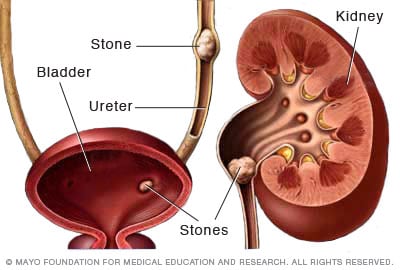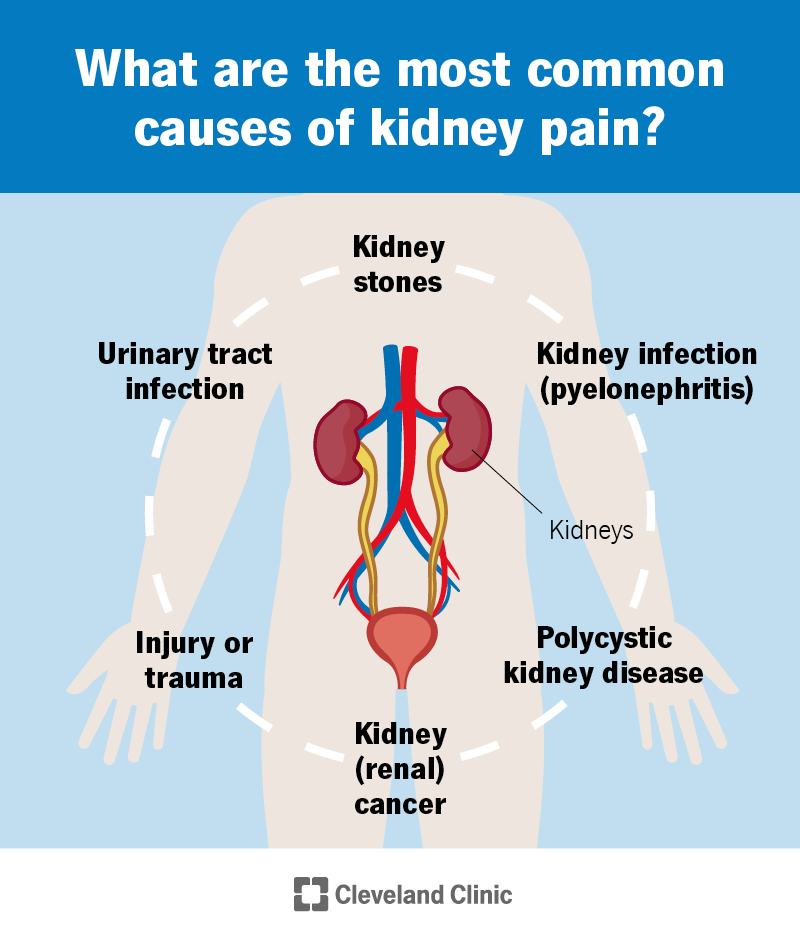Comprehensive Overview to Kidney Stones vs UTI: Medical Diagnosis, Creates, and Alleviation
Checking Out the Symptoms and Causes of Kidney Stones in Comparison to Urinary Tract Infections: A Comprehensive Overview
The exploration of kidney stones and urinary system infections (UTIs) discloses a complicated interplay of signs and underlying causes that require careful assessment. What are the essential differences in their symptoms, and just how might these educate therapy approaches?
Overview of Kidney Stones
Kidney stones, additionally referred to as renal calculi, form when particular materials in the urine crystallize and accumulation, causing the development of tough down payments within the kidneys. These rocks can vary in size, ranging from a grain of sand to a golf round, and can be made up of different products, the most typical being calcium oxalate, uric acid, struvite, and cystine. The development of kidney rocks is affected by numerous elements, consisting of dietary behaviors, liquid consumption, and hereditary proneness.
Signs of kidney rocks may include serious pain in the back or side, blood in the pee, nausea, and frequent urination, specifically as the rock relocates with the urinary system tract. Medical diagnosis usually entails imaging studies such as ultrasound or CT scans, together with urinalysis to determine the stone's composition.
Treatment alternatives vary based upon the size and kind of rock, as well as the seriousness of signs and symptoms (Kidney Stones vs UTI). Small stones may pass normally with raised fluid consumption, while bigger rocks might call for clinical interventions such as lithotripsy or surgical removal. Recognizing the pathophysiology and danger aspects related to kidney stones is essential for effective prevention and administration
Review of Urinary System Tract Infections
Urinary tract infections (UTIs) are usual microbial infections that affect any kind of part of the urinary system, consisting of the kidneys, ureters, bladder, and urethra. They primarily take place when microorganisms, frequently from the stomach tract, go into the urinary system, leading to swelling and infection.
The prevalence of UTIs is significantly greater in females than guys, mainly as a result of physiological differences, such as a much shorter urethra. Danger factors consist of sex, certain contraceptive methods, urinary retention, and dehydration. The diagnosis of UTIs is normally verified via pee tests, which may reveal the existence of bacteria, white blood cells, or red blood cells.

Signs of Kidney Stones
The pain linked with kidney stones can show up in various methods, usually leading individuals to look for clinical attention. One of one of the most usual signs and symptoms is severe pain, commonly localized in the lower back or side, which might emit to the abdominal area or groin. This pain, often called sharp or cramping, can take place suddenly and might change in strength.
In addition, people may experience hematuria, or blood in the pee, which can range from tiny quantities to visible staining. This signs and symptom may be accompanied by adjustments in urinary behaviors, such as this contact form boosted frequency or urgency, along with discomfort throughout peeing. Nausea or vomiting and throwing up are additionally widespread, frequently arising from the body's reaction to intense discomfort.
In some situations, people may experience high temperature and chills, specifically if a secondary infection creates because of the obstruction brought on by the stones. On the whole, the combination of serious pain, hematuria, altered urinary system patterns, and gastrointestinal symptoms can give considerable understanding right into the presence of kidney rocks, requiring prompt medical assessment and intervention. Comprehending these symptoms is important for timely medical diagnosis and effective administration of the condition.
Signs of Urinary Tract Infections
Infections within the urinary system system usually offer a series of distinct signs and symptoms that can considerably influence life. One of the most usual signs include a persistent urge to pee, often come with by a burning feeling throughout urination, known as dysuria. People might likewise experience enhanced frequency of urination, creating percentages of urine each time.
Other significant signs include foul-smelling or cloudy pee, which might suggest the existence of microorganisms or pus. In many cases, pee may appear pink or red due to the existence of blood, a condition called hematuria. Additionally, people might experience pelvic pain or stress, which can better intensify the feeling of seriousness.
Systemic signs might also materialize, such as high temperature, chills, and exhaustion, specifically if the infection has actually risen to the kidneys. It is vital to acknowledge these signs early, as unattended urinary system system infections can lead to a lot more extreme issues. Kidney Stones vs UTI. Motivate clinical focus is recommended when these signs are observed, permitting proper analysis examination and treatment to ease pain and protect against additional health concerns
Reasons For Each Condition
Often, kidney stones and urinary system infections arise from distinct yet sometimes overlapping reasons that can influence individuals in different ways. Kidney rocks commonly create as a result of metabolic aspects, dietary selections, and genetic tendencies. Enhanced degrees of calcium, important source oxalate, or uric acid in the pee can bring about rock formation. Dehydration, not enough fluid intake, and high-sodium diet regimens can intensify these problems, advertising condensation within the urinary tract.

Recognizing these distinct reasons is essential for avoidance and therapy. Kidney Stones vs UTI. While lifestyle adjustments may alleviate the risk of kidney rocks, appropriate health and timely therapy of urinary system tract infections are essential for reducing their reappearance and associated issues
Verdict
In summary, kidney stones and urinary system system infections present distinctive symptoms and underlying causes. Kidney stones are characterized by severe pain and metabolic aspects, while urinary tract infections mainly entail microbial infections leading to urinary seriousness and discomfort.
The expedition of kidney rocks and urinary system infections (UTIs) discloses a complex interplay of signs and symptoms and underlying causes that require careful assessment.Urinary tract infections (UTIs) are common bacterial infections that influence any type of component of the urinary system, consisting of the kidneys, ureters, bladder, and urethra.Often, kidney stones and urinary tract infections emerge from distinctive yet often overlapping causes that can affect individuals differently.In recap, kidney stones and urinary system infections existing distinct signs and symptoms and underlying causes. Kidney stones are identified best site by severe discomfort and metabolic factors, while urinary tract infections primarily involve microbial infections leading to urinary system necessity and discomfort.